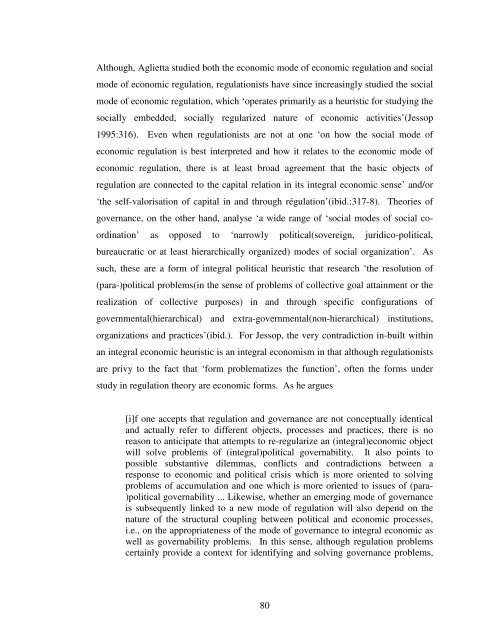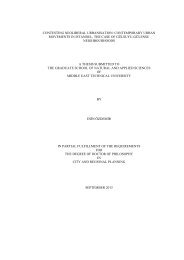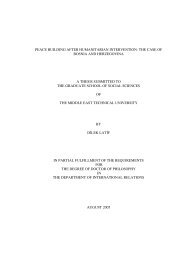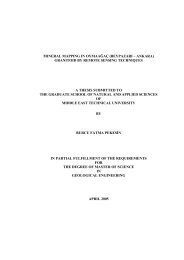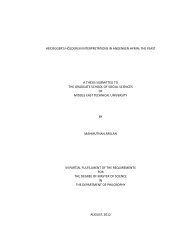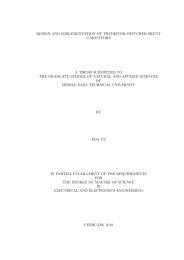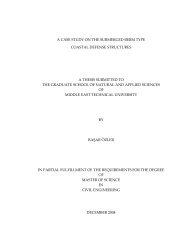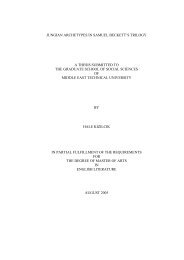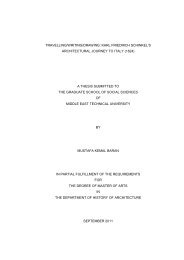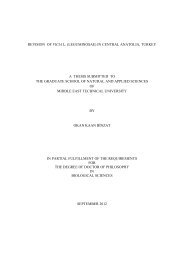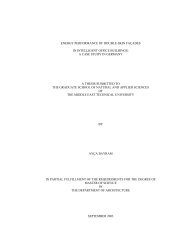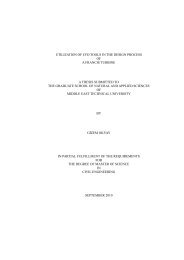View Original - Middle East Technical University
View Original - Middle East Technical University
View Original - Middle East Technical University
Create successful ePaper yourself
Turn your PDF publications into a flip-book with our unique Google optimized e-Paper software.
Although, Aglietta studied both the economic mode of economic regulation and social<br />
mode of economic regulation, regulationists have since increasingly studied the social<br />
mode of economic regulation, which ‘operates primarily as a heuristic for studying the<br />
socially embedded, socially regularized nature of economic activities’(Jessop<br />
1995:316). Even when regulationists are not at one ‘on how the social mode of<br />
economic regulation is best interpreted and how it relates to the economic mode of<br />
economic regulation, there is at least broad agreement that the basic objects of<br />
regulation are connected to the capital relation in its integral economic sense’ and/or<br />
‘the self-valorisation of capital in and through régulation’(ibid.:317-8). Theories of<br />
governance, on the other hand, analyse ‘a wide range of ‘social modes of social co-<br />
ordination’ as opposed to ‘narrowly political(sovereign, juridico-political,<br />
bureaucratic or at least hierarchically organized) modes of social organization’. As<br />
such, these are a form of integral political heuristic that research ‘the resolution of<br />
(para-)political problems(in the sense of problems of collective goal attainment or the<br />
realization of collective purposes) in and through specific configurations of<br />
governmental(hierarchical) and extra-governmental(non-hierarchical) institutions,<br />
organizations and practices’(ibid.). For Jessop, the very contradiction in-built within<br />
an integral economic heuristic is an integral economism in that although regulationists<br />
are privy to the fact that ‘form problematizes the function’, often the forms under<br />
study in regulation theory are economic forms. As he argues<br />
[i]f one accepts that regulation and governance are not conceptually identical<br />
and actually refer to different objects, processes and practices, there is no<br />
reason to anticipate that attempts to re-regularize an (integral)economic object<br />
will solve problems of (integral)political governability. It also points to<br />
possible substantive dilemmas, conflicts and contradictions between a<br />
response to economic and political crisis which is more oriented to solving<br />
problems of accumulation and one which is more oriented to issues of (para-<br />
)political governability ... Likewise, whether an emerging mode of governance<br />
is subsequently linked to a new mode of regulation will also depend on the<br />
nature of the structural coupling between political and economic processes,<br />
i.e., on the appropriateness of the mode of governance to integral economic as<br />
well as governability problems. In this sense, although regulation problems<br />
certainly provide a context for identifying and solving governance problems,<br />
80


